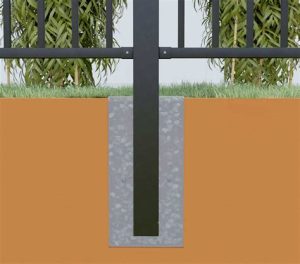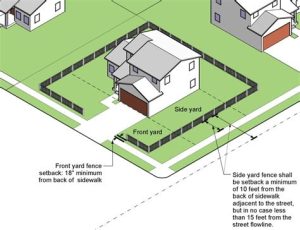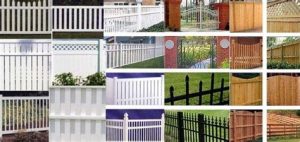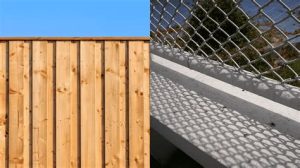Explore homeowner associations, their regulations, and learn about the importance of fence permits and their impact on property value.When it comes to enhancing the appearance and functionality of your property, installing a fence can be an appealing option. However, before you dive into construction, it’s crucial to understand the role of Homeowner Associations (HOAs) in the permit process. These organizations serve to maintain community standards and ensure that all modifications align with neighborhood aesthetics. In this blog post, we will explore what homeowner associations are, the importance of securing fence permits, and the guidelines you must follow to obtain one. We’ll also delve into the specific regulations set forth by HOAs and discuss how these permissions can impact your property value. Whether you’re a new homeowner or considering a fence upgrade, this comprehensive guide will provide essential insights into navigating the complexities of fence permits within your community.
What are homeowner associations?
The homeowner association (HOA) is a governing body in certain residential communities, typically formed to manage the shared interests and services within that community. An HOA is responsible for enforcing community rules, maintaining common areas, and managing communal amenities such as pools, parks, and clubhouses. They are primarily designed to ensure that the community remains an attractive and pleasant place to live for all residents.
Membership in an HOA is usually mandatory for residents who purchase property in the community. This membership often comes with a set of guidelines and regulations that homeowners must adhere to, which may include restrictions on exterior home modifications, landscaping, and in some cases, the types of fences that can be installed around properties.
HOAs collect dues from homeowners to cover the costs associated with maintaining shared amenities and enforcing community rules. These dues can vary widely depending on the size of the community and the services provided, but they are essential for ensuring that the neighborhood remains well-maintained and attractive.
Importance of fence permits
Obtaining a fence permit is a crucial step in the process of building a fence around your property. These permits serve as a way to regulate construction and ensure compliance with local laws and regulations. Communities have guidelines in place to maintain aesthetic standards, ensure safety, and protect property values.
One of the primary reasons for requiring a fence permit is to ensure that the fence aligns with local zoning laws. These laws dictate the height, placement, and materials that can be used for fences in specific areas. Without permits, your fence might inadvertently violate these rules, leading to potential fines or the requirement to remove or alter the fence.
Additionally, having a fence permit helps in protecting the interests of your neighbors. By following established guidelines, you can avoid disputes and maintain harmonious relationships within your community.
Guidelines for obtaining a fence permit
When considering a fence installation, understanding the guidelines for obtaining a fence permit is crucial. Each municipality has its own set of regulations that dictate when a permit is required and what the process entails. Some factors that might influence the need for a permit include the height, location, and type of material used for the fence.
- Research Local Regulations: Before proceeding, homeowners should check with local government offices to understand specific requirements. Each area may have different restrictions based on zoning laws and homeowner association regulations.
- Prepare Required Documents: Homeowners usually need to submit plans of the proposed fence, including dimensions and material specifications. Some jurisdictions may require a plot plan marking the exact location of the fence.
- Submit Application: Complete the permit application and submit it along with any required documentation and fees to the relevant authority.
- Review Process: The local zoning board or appropriate department will review the application. This may take several weeks, depending on local procedures.
- Await Approval: Once approved, homeowners can begin installation. Be sure to keep the permit on hand during the project as proof of compliance.
Following these guidelines not only ensures adherence to local laws but also helps prevent potential disputes with neighbors or local authorities. Understanding the importance of following these guidelines is paramount to maintaining good relationships in your community.
Homeowner association regulations
Homeowner associations (HOAs) are organizations that enforce rules and regulations in residential communities. These regulations are designed to maintain property values, ensure the common good, and promote a harmonious living environment. While specific rules can vary significantly from one HOA to another, there are common themes that most associations address.
Among the most critical regulations are those related to property changes, including fence permits. Most HOAs require homeowners to obtain approval before making significant modifications to their property, such as installing a fence. This is to ensure that any changes align with the community’s aesthetic and safety standards.
| Regulation Category | Description |
|---|---|
| Height Restrictions | Many HOAs limit the height of fences to ensure visibility and natural light. |
| Material Guidelines | Some associations specify acceptable materials to maintain a uniform look. |
| Color Schemes | HOAs may dictate color options for fences to match community themes. |
| Location and Setbacks | Fencing may need to adhere to specific property lines and setbacks. |
Additionally, it’s crucial for homeowners to read their HOA’s governing documents, which typically outline all regulations and processes for obtaining fence permits. Understanding these rules can save homeowners time and money by avoiding potential fines or the need to dismantle non-compliant structures.
In summary, homeowner association regulations serve an essential function in preserving the integrity of residential areas.
Impact of fence permits on property value
When considering the overall value of a property, the choice to install a fence can play a significant role, particularly when it comes to obtaining fence permits. These permits not only ensure that the installation follows local regulations but also dictate how the fence will impact your property’s value.
First and foremost, having a fence permit demonstrates to potential buyers that the property has been maintained according to regulations, which can enhance the overall appeal of the home. In many neighborhoods, especially those governed by homeowner associations (HOAs), complying with these rules is crucial. Properties that do not have the right permits may be viewed less favorably, as they could be subject to penalties or require the removal of the fence, leading to perceived instability in property value.
Moreover, a well-constructed, permitted fence not only offers privacy and security but also acts as a landscaping feature that can make a property more attractive. When a fence complements the home’s overall aesthetic and adheres to community standards, it can significantly enhance curb appeal and subsequently raise property values. In contrast, an unpermitted or poorly designed fence could create legal challenges, potentially reducing the property’s marketability.
Frequently Asked Questions
What is the primary function of a homeowner association (HOA) concerning fence permits?
The primary function of an HOA regarding fence permits is to establish and enforce community guidelines that dictate the types of fences allowed, their heights, materials, and overall aesthetic to maintain a consistent neighborhood appearance.
Do I need to obtain a permit from my HOA before installing a fence?
Yes, in most cases, you will need to submit a permit application to your HOA before installing a fence to ensure compliance with community regulations.
What factors might the HOA consider when reviewing a fence permit application?
The HOA may consider factors such as the proposed height and material of the fence, its design, location on the property, and how it fits with the overall aesthetics of the community.
Can an HOA deny a fence permit application?
Yes, an HOA has the authority to deny a fence permit application if it does not comply with the established guidelines or if it negatively impacts the community’s appearance or property values.
What should I do if my fence permit application is denied by the HOA?
If your application is denied, you can typically ask for specific reasons for the denial, and you may have the opportunity to modify your proposal and resubmit for approval.
Are there any legal protections for homeowners regarding HOA fence policies?
Yes, homeowners may have legal protections depending on state laws and the specific governing documents of the HOA. It’s advisable to review those regulations or seek legal advice if you feel your rights are being violated.
How can homeowners stay informed about changing HOA rules related to fences?
Homeowners can stay informed by attending HOA meetings, reading community newsletters, reviewing meeting minutes, and checking the HOA’s official website for updates on rules and regulations regarding fences.





